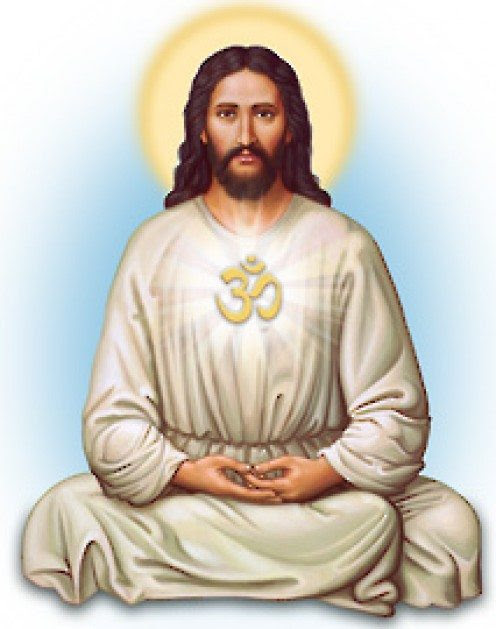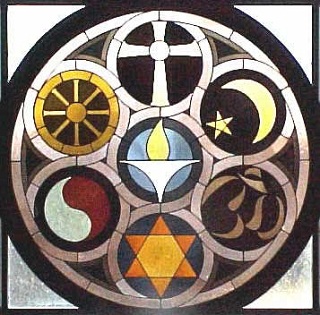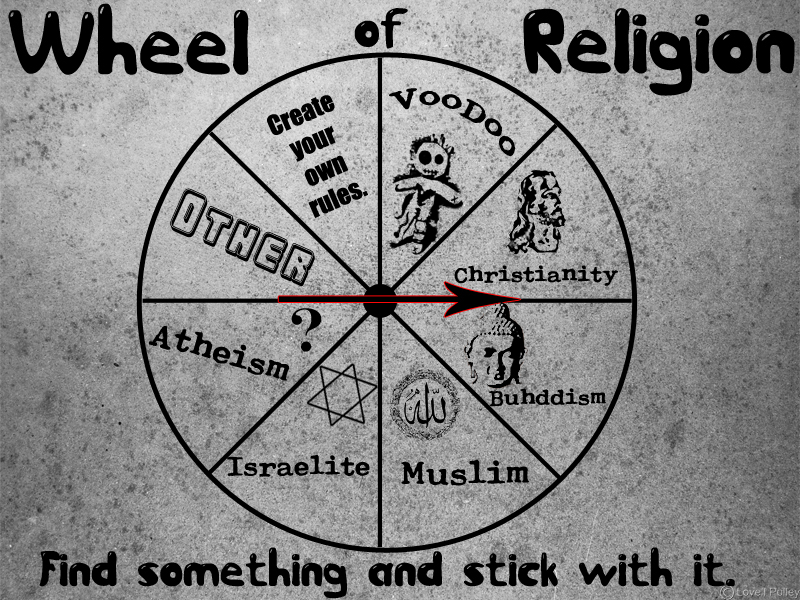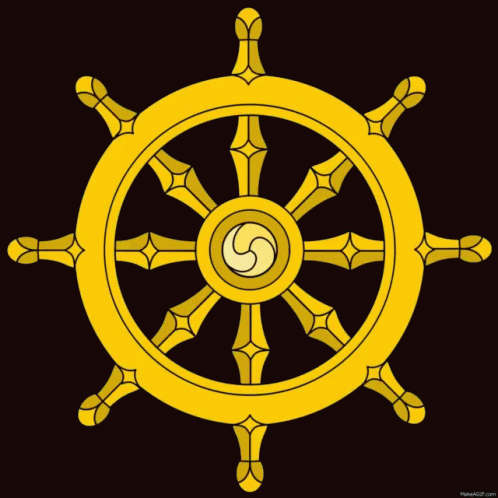Last Friday evening, Cecilia, my mother-in-law and pal, and my wonderful wife Carol, and I were sitting around shooting the breeze after watching John Carpenter’s Prince of Darkness and the season finale of The Exorcist TV series. Not surprisingly, the conversation turned in the direction of theology. It often does, not so much because of my own interest in all things religious, but because Carol and Cecilia have a long-running (and friendly) dispute. Cecilia is a very conservative Roman Catholic, while Carol is an enthusiastic proponent of New Thought. Cecilia is quite sure there is one true faith and that she is in it. Carol regards that as way too restrictive. Why limit your options? Why not pick and choose? The discussion raised two issues in my mind. I want to ruminate on them a bit if you’ll indulge me.
           First comes the issue of Syncretism or eclecticism: choosing elements from this religion and that, combining them into a creed of your own. Are the preferred tenets logically or practically compatible? Once at Gordon Conwell Seminary I wrote a skit pretending to be a theological game show called Twist That Text! (Gotta admit I swiped the title and the idea from my mentor Michael S. Kogan at Montclair State College.) One segment of the show featured “the Systematic Theology Wheel.†Each spoke of the wheel had a doctrine inscribed on it: “Predestination,†“Universal Election,†“Annihilation of the Wicked,†etc. You’d give it a spin, inevitably winding up with a raft of grossly incompatible doctrines which you’d then have fifteen seconds to harmonize into a coherent theological system. Our contestant won the big prize with this reasoning: “Let’s see… everyone is elected, but since there have to be some wicked to be annihilated… everyone is predestined to go to Hell!†Bingo!
Is that the way theology really works? A jury-rigged mess of disparate beliefs? For my money, that’s what the Trinity is, for example. “Now we want to be monotheists, but we also want to worship Jesus alongside God, so I guess Jesus must be God, too, but not the same one. But not really a different one, or we’d have to admit we’re polytheists. So how about this? Jesus and his Father are two persons sharing the one divine nature… or something.â€
If it’s nothing but a mind game, the incompatible ideas don’t really matter. You never have to put them to practical use, so they’re untestable. But if your doctrines are applicable to your life, the contradictions will result in contradictory behavior and cognitive dissonance. The greatest example would have to be your belief that “God is love†on the one hand and that God is planning on subjecting some people to eternal torment on the other. You can always just ignore one or the other, but that’s cheating. If you try to reconcile hell belief with God’s love you must end up considering love as somehow compatible with torture. That’s screwed up, and you will be screwed up.
But I don’t think that kind of theological schizophrenia is entailed in the syncretism many people espouse. Instead, they are discovering that certain elements have appeared in different religions independently. There are spontaneous parallels that are not copyrighted by any one of the faiths in which they appear. Salvation by grace through faith has been derived by the same basic logical process in both Protestant Christianity and Pure Land Buddhism. Jesus is the savior in the one case, Amitabha Buddha in the other. Neither appears to have influenced the other.
 Similarly, mystical non-dualism appears in Taoism, early Sufism, Mahayana Buddhism, and in Meister Eckhart’s writings.
Similarly, mystical non-dualism appears in Taoism, early Sufism, Mahayana Buddhism, and in Meister Eckhart’s writings.
           How do we account for this? Actually, it is quite simple. All religions contain a wide variety of beliefs and approaches. Activist versus passivist, salvation by faith or by works. The founder as a vicarious savior versus a way-shower. Allegorical versus literalist reading of scriptures. Ancient scripture versus ongoing revelation. And so on. The fact is that humans have the same mental machinery which they bring to bear on certain perennial questions, resulting in the same range of resultant positions. And, for example, non-dualists belonging to Hinduism recognize non-dualists in Buddhism, etc., once they come to learn about them. They find kindred spirits, merely employing different but equivalent idioms. Their links to the like-minded in other faiths are stronger than their links to the people sitting next to them in the same pew. So they belong to two different religions but in different senses. Why not? You could call such people syncretists, but this is misleading because it is in fact the same doctrine that they are holding in common with the like-minded individuals wearing different religious labels. What I’m getting at is that a “syncretist†of this kind is not creating some Mulligan stew of disparate ideas. Not spinning the Theology Wheel. No, they are happily recognizing that other faiths share some particular belief they themselves already embraced. Why not learn from what these “foreign†cousins have to say about it?
           The second question is one long ago discussed by the father of Liberal Protestant theology, Friedrich Schleiermacher, a thinker very important to me personally. Is “Natural Religion†adequate? Or isn’t “Positive Religion†necessary if religion is to become more than a set of abstract, idiosyncratic opinions? “Natural†religion, popular among intellectuals of the eighteenth and nineteenth centuries, was primarily ethical and philosophical in character, overlapping with Deism. It was religiosity in general. Schleiermacher denied that this was an authentic form of religion. It was more opinion than communion, more properly to be categorized as philosophy of religion rather than religion itself. Schleiermacher stressed the need for participation in some one of the historic religious communities, and not necessarily the Christian one. It is revealing that Schleiermacher spoke of the Holy Spirit as “the Spirit of the Christian Community.â€
           Traditionally, religious communities were united by corporate worship and ritual. The strength of this approach is evident from the fact that some groups are almost indifferent to whatever beliefs their individual members may privately hold. Judaism and Episcopalianism have grown to accommodate a broad spectrum of belief in this way. But can such a common life be sustained among freethinkers? Can such a gathering transcend the character of a polite debating society?
Are these two options really alternatives, or would it be more illuminating to view them as markers along a continuous spectrum? The latter way of looking at it might make more sense of the actual social phenomena. I will say, however, that in my experience the closest thing to a Natural Religion community, namely the Unitarian Universalist Association, though it may duplicate the social patterns of traditional churches, seems to me to be more of a political group, much more ethical than religious in any traditional sense. A kindred group was until quite recently called the Ethical Culture Society, which seems to me more accurately descriptive for Unitarianism as well.
           I understand this distance between Unitarian “fellowships†and “associations†on the one hand and traditional churches, synagogues, and mosques on the other in terms of another important aspect of Schleiermacher’s thought: the indispensable character of religious piety as the conscious awareness of “absolute dependence†upon the infinite Totality of Being that is God. The ethical dimension is non-negotiable, but it is not the essence of religion as Kant thought. Scripture and myth are not merely Sunday School lessons inculcating ethical growth. Rather, for Schleiermacher, they are catalytic for “God-consciousness.†I think Unitarianism attests the truth of Schleiermacher’s opinion. Unitarianism strikes me as essentially secular and pragmatic, non-religious and sterile. In many places it gives the impression of being a mere adjunct of the Democratic Party. This is, in effect, just what Schleiermacher expected and predicted would happen once religion defines itself as ethics. Noble but arid.
           Above, I described some who feel a deeper, more significant connection to members of other traditional religions with whom, however, they share some doctrinal belief (e.g., non-dualism) even though they continue attending church alongside those without that deeper understanding. They are like the ancient Valentinian Gnostics who regularly attended Catholic congregations but also attended Gnostic study groups on the side. The church authorities thought these Gnostics should just scram and stick to their “heresy.†But the Gnostics apparently felt the need for both. I think that’s probably a pretty good model for those “syncretists†with a foot in both camps today.
So says Zarathustra,
Â


